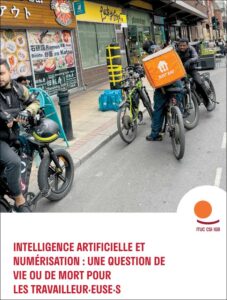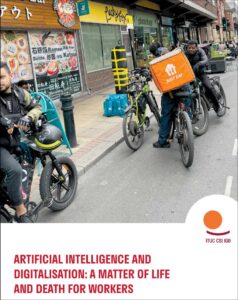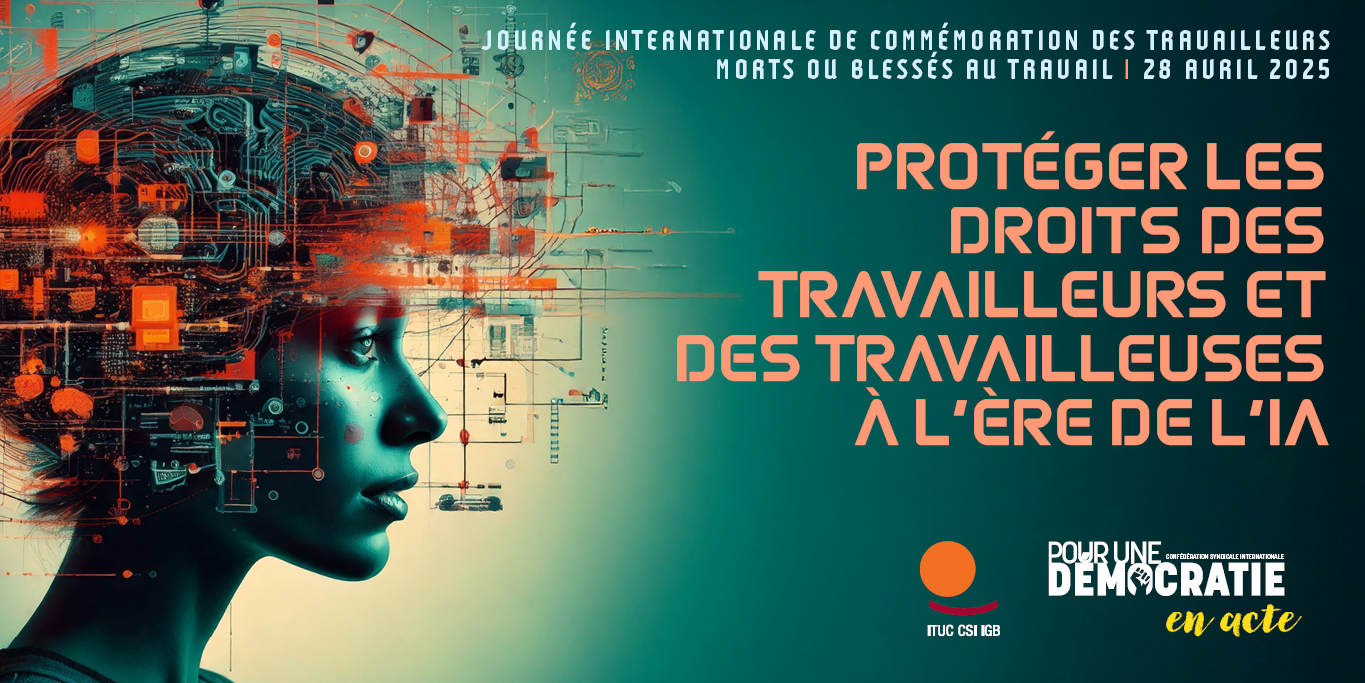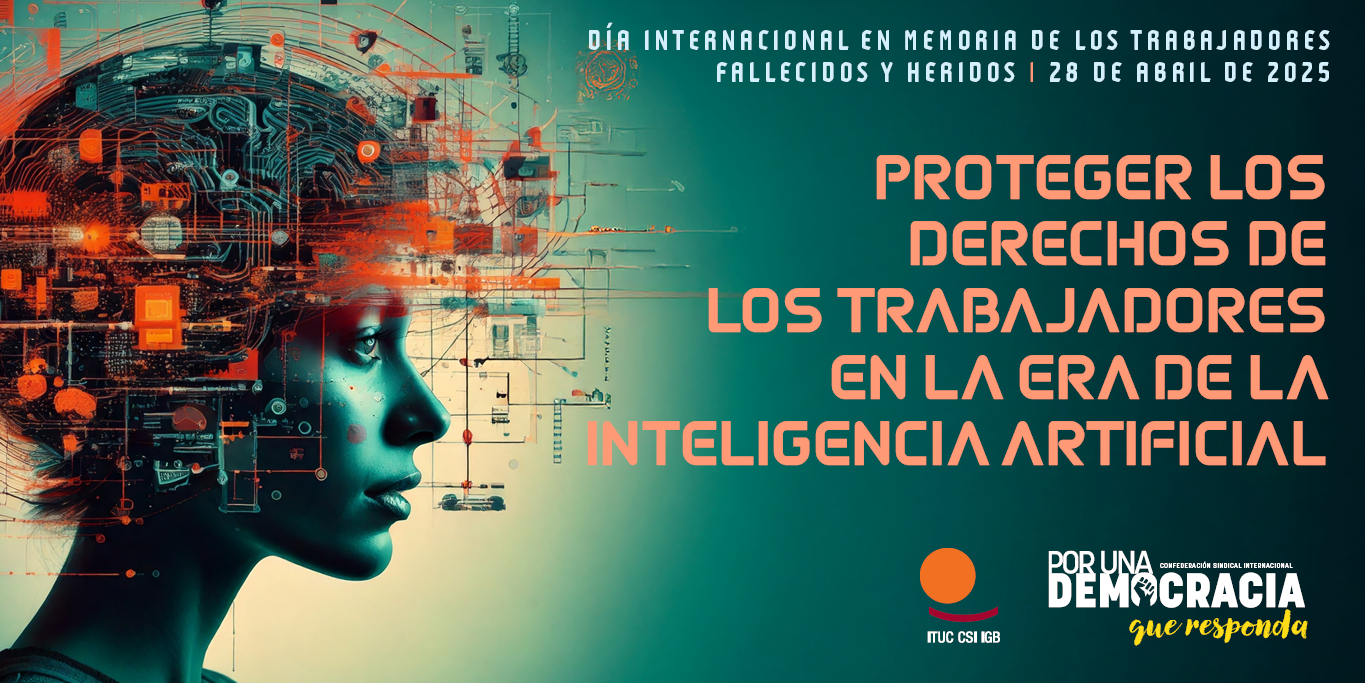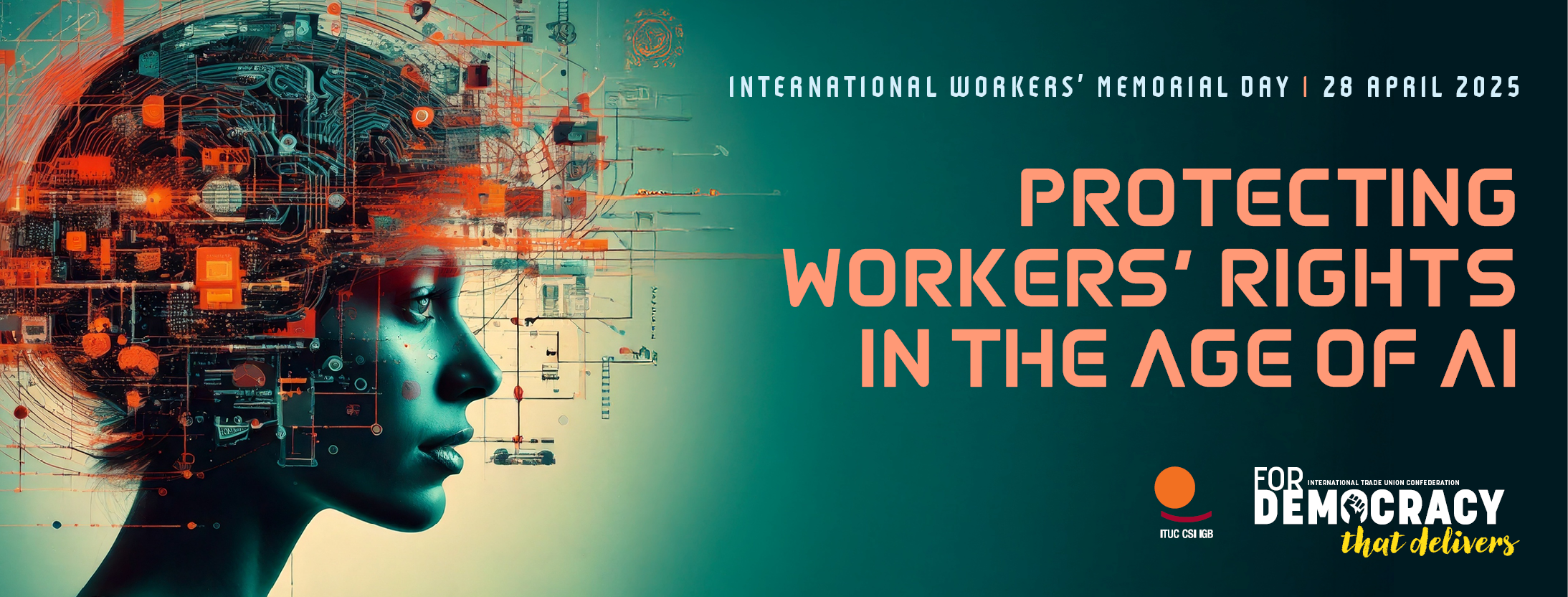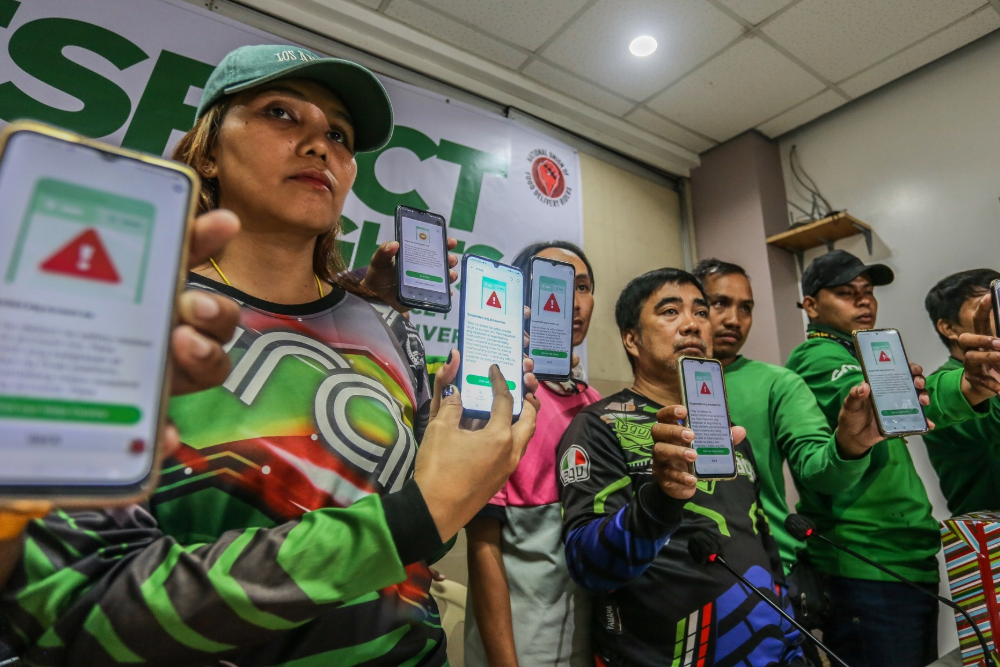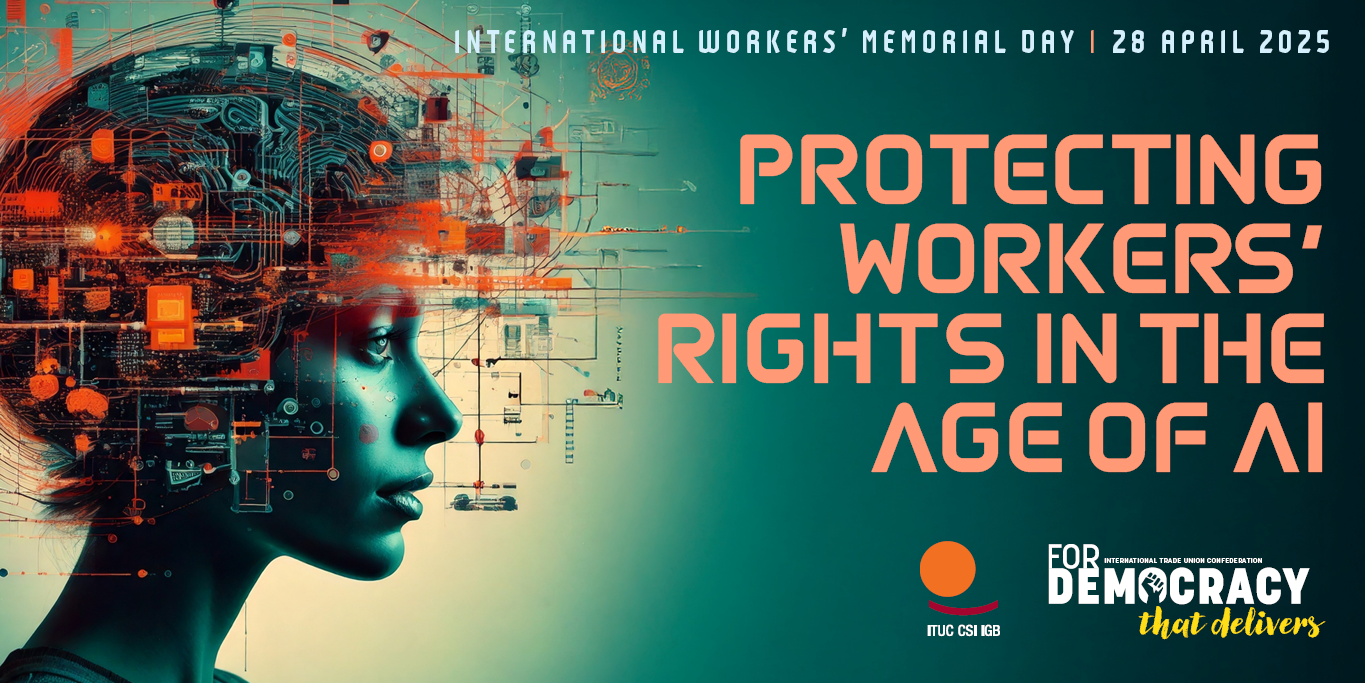 Documentación asociada Manifiesto 28 de abril
Documentación asociada Manifiesto 28 de abril
En el Día Mundial de la Seguridad y Salud en el Trabajo, CCOO y UGT reafirmamos nuestro compromiso con la defensa de la seguridad y salud de las personas trabajadoras, y de entornos seguros y saludables como derecho fundamental. El 28 de abril es una fecha de recuerdo de todas aquellas personas que han perdido su salud o su vida en el trabajo, pero también es una fecha de reivindicación y de demanda a la sociedad de más atención ante este problema.
En 2024 se produjeron 1.181.202 accidentes de trabajo, de los que 628.300 provocaron una baja laboral. Además, 796 personas murieron en accidente laboral, cumpliéndose así con las estimaciones de incremento de los accidentes mortales que hacíamos desde los sindicatos. De hecho, en 2024 se produjeron 75 muertes más que en 2023.
Las personas trabajadoras tenemos derecho a volver a casa “sanas y salvas” después de la jornada laboral. No estamos reclamando compromisos inalcanzables, únicamente aplicar el derecho a que se garantice nuestra seguridad y salud en el trabajo. Por ello, desde CCOO y UGT continuamos exigiendo que se establezcan las medidas necesarias para acabar con esta insoportable siniestralidad laboral de forma eficaz e inmediata, que pasa necesariamente por modificar y modernizar la ley y por la negociación y articulación de un Plan de Choque contra la Siniestralidad Laboral. Los accidentes de trabajo, además de suponer un drama personal y familiar, demuestran que las condiciones de trabajo son inseguras e injustas.
Tampoco nos olvidamos de las víctimas del amianto que están sufriendo una situación realmente injusta ya que, tras más de dos años de la creación del fondo de compensación para las víctimas de este agente cancerígeno, todavía no se ha aprobado el reglamento necesario para su puesta en funcionamiento. Desde CCOO y UGT consideramos intolerable este retraso e instamos al Gobierno a que desbloquee esta situación de manera inmediata, concediendo unas indemnizaciones adecuadas y exentan de tributación del IRPF como ya se hace con otros colectivos.
La realidad está marcada por un desarrollo económico y productivo en plena transformación, que supone cambios muy rápidos no solo en el trabajo, sino también en los riesgos asociados al mismo. La revolución tecnológica, los efectos del cambio climático, el impacto del trabajo en la salud mental y la longevidad de la población activa suponen desafíos importantes para la seguridad y salud en el trabajo. Es por ello que, desde CCOO y UGT consideramos urgente la actualización de la normativa preventiva e instamos al Gobierno a la intensificación de las negociaciones iniciadas en la mesa de diálogo social hace más de 1 año.
Hay que cambiar la organización preventiva en la empresa para alcanzar una mayor integración de la prevención de los riesgos laborales, avanzar en la calidad de los servicios de prevención y mejorar la protección de la salud mental de las personas trabajadoras reforzando la prevención de los riesgos psicosociales, pero también acometer la diversidad generacional y la perspectiva de género en la gestión preventiva. Además, es necesario mejorar las condiciones de seguridad y salud en el trabajo en las PYMES a través del refuerzo de la gestión preventiva, para ello, contar con la participación de las personas trabajadoras es esencial para que el centro de trabajo sea un lugar sin riesgos.
En la modificación de la normativa debe hacerse explicita la obligación empresarial de evaluar y adoptar medidas que protejan la salud mental de las personas trabajadoras, teniendo además en cuenta la transformación digital y el impacto de las nuevas formas de organización del trabajo.
Consideramos, además, inaplazable la actualización del cuadro de enfermedades profesionales español para que sean incluidas, entre otras, las enfermedades mentales vinculadas al trabajo y para dotarlo de la necesaria perspectiva de género.
El desarrollo tecnológico, con la digitalización, la robotización o la utilización de la inteligencia artificial, presenta oportunidades desde la óptica de la prevención de riesgos laborales, pero fundamentalmente plantea nuevos retos que es necesario abordar.
Se trataría de aprovechar la oportunidad de la digitalización para crear lugares de trabajo más seguros, automatizando tareas peligrosas, mitigando el trabajo monótono o utilizar la IA para prevenir accidentes mediante el análisis de datos en tiempo real para la detección de fallos en máquinas o el empeoramiento de las condiciones ambientales, evitando los riesgos que pueda añadir, y que habitualmente no se tienen en cuenta.
Es especialmente relevante como la digitalización y la inteligencia artificial en el trabajo están incrementado la exposición a riesgos psicosociales como consecuencia de la intensificación del trabajo, la falta de desconexión, la monitorización y vigilancia constante, o la reducción de la autonomía para realizar pausas o descansos. Su impacto en la salud mental de las personas trabajadoras es evidente.
Desde CCOO y UGT vemos necesario que se garantice un punto de encuentro entre la innovación en el mercado de trabajo y la seguridad y salud de las personas trabajadoras. Por ello, deben establecerse marcos regulatorios justos y éticos que protejan los derechos de la clase trabajadora tanto en el diseño como en la implementación de estas herramientas e impulsen una formación de calidad en nuevas tecnologías que permita conocer sus riesgos asociados y las formas segura de utilización.
Los sindicatos somos cruciales en la gestión del cambio que viene de la mano de la digitalización y la IA. Se deben respetar los derechos sindicales de la negociación colectiva y el dialogo social y fortalecer una democracia en el lugar de trabajo que impulse cambios tecnológicos que beneficien a todos. Garantizar la participación activa de los sindicatos en esta transformación nos permitirá crear un futuro del trabajo inclusivo y equitativo.
Es urgente recuperar el impulso de las políticas públicas en materia de seguridad y salud en el trabajo y aumentar los recursos de la Inspección de Trabajo, del Instituto Nacional de Seguridad y Salud en el Trabajo y de todas las estructuras autonómicas de prevención de riesgos laborales, así como la creación de Juzgados especializados en la materia.
Por último, queremos seguir manifestando nuestro apoyo, compromiso y reconocimiento a la labor de los delegados y delegadas de prevención, agradeciendo a todos ellos su dedicación para conseguir que los centros de trabajo sean más seguros, y hacemos un llamamiento a las trabajadoras y trabajadores para que participen en los diferentes actos convocados con motivo de la conmemoración del 28 de abril para conseguir visibilizar el drama de la siniestralidad laboral; la falta de cumplimiento de la normativa en materia de prevención de riesgos laborales por parte de las empresas y la necesidad de actualizar la normativa para dar respuesta a los nuevos retos del mundo del trabajo.
 Inteligencia artificial y digitalización: una cuestión de vida o muerte para los trabajadores En este informe de la CSI se identifican daños físicos y psicosociales generalizados en el trabajo asociados al uso de estas tecnologías, desde la sobrecarga cognitiva que supone para los humanos tener que trabajar en tándem con robots – cobots o robots colaborativos – hasta lesiones por movimientos repetitivos, estrés y depresión como consecuencia de objetivos inalcanzables determinados y controlados por algoritmos. Descargar aquí
Inteligencia artificial y digitalización: una cuestión de vida o muerte para los trabajadores En este informe de la CSI se identifican daños físicos y psicosociales generalizados en el trabajo asociados al uso de estas tecnologías, desde la sobrecarga cognitiva que supone para los humanos tener que trabajar en tándem con robots – cobots o robots colaborativos – hasta lesiones por movimientos repetitivos, estrés y depresión como consecuencia de objetivos inalcanzables determinados y controlados por algoritmos. Descargar aquí